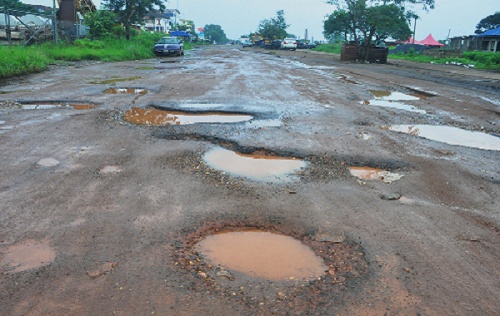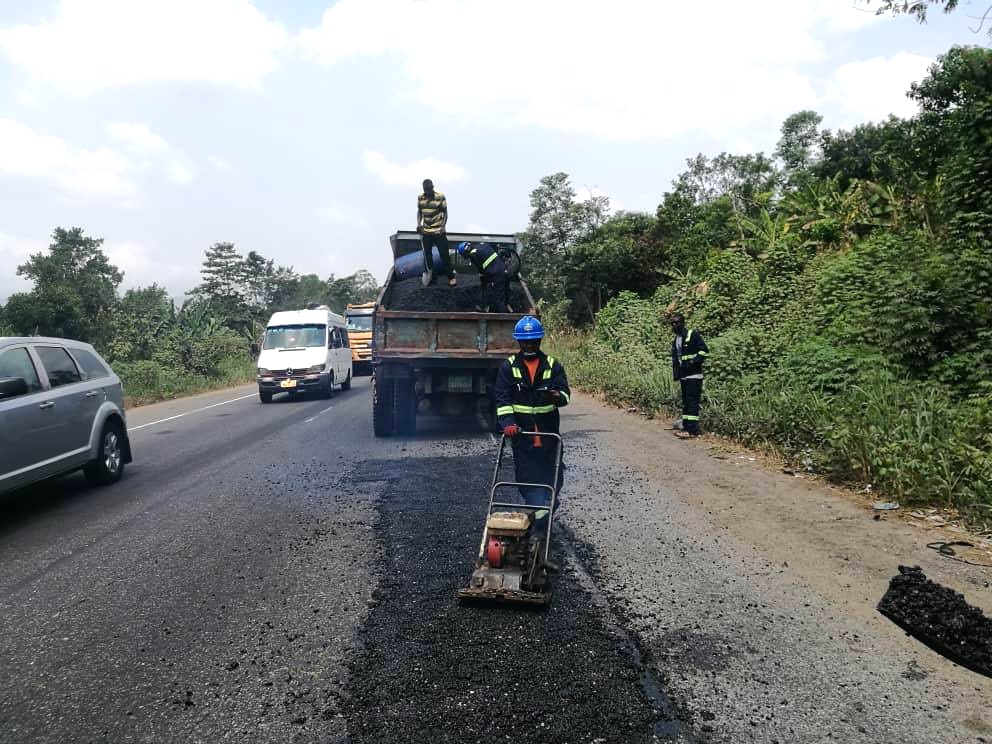Every year, when the rainy season begins, Ghana’s roads turn into flooded highways, pothole-ridden streets, and traffic nightmares. The problem is not new, yet it remains unsolved, leaving drivers, pedestrians, and businesses struggling to navigate roads that should be safe and reliable.
Across Accra, Kumasi, and other major cities, heavy rains overwhelm drainage systems, turning streets into rivers. Vehicles stall, shops close, and commuters spend hours trapped in traffic. For many, the rainy season means damaged cars, lost business, and daily frustration.
The lack of proper drainage remains a key issue. Many roads were built without adequate water outlets, causing rainwater to collect instead of flowing into canals or gutters. Over time, standing water erodes the asphalt, leading to potholes that grow bigger with every rainfall.
Potholes: The silent destroyers

Even after the rains stop, the damage continues. Roads that were once manageable become death traps for drivers, with potholes deep enough to destroy tires and suspensions. In some areas, road users are forced to swerve dangerously or take longer routes to avoid the worst-hit areas.
According to a Ghana Statistical Service report, 33.8% of workerscitebad roadsas their biggestchallenge when commuting, while 19.4% of students report difficulties traveling to school due to deteriorating roads during the rainy season
For commercial drivers, this translates into higher maintenance costs and lost income. Trotro and taxi drivers complain about frequent repairs, while private car owners struggle with sudden breakdowns caused by poor road conditions.
The Government’s yearly promise

Each year, authorities promise road repairs, improved drainage, and better infrastructure. Some efforts are made, patching potholes, clearing gutters, and reinforcing weak roads; but these solutions are often temporary. When the next rainy season arrives, the same problems return, leaving citizens asking: Why does this crisis never end?
Experts suggest that Ghana needs a long-term road maintenance strategy, not just seasonal fixes. This includes better urban planning, regular inspections, and a commitment to durable construction materials that can withstand heavy rainfall.
What can be done?
While road repairs remain the government’s responsibility, citizens can also contribute to solutions. Proper waste disposal is crucial, blocked gutters often result from plastic waste and debris clogging drainage systems. Additionally, stricter building regulations could prevent constructions that interfere with natural water channels.
For a lasting solution, Ghana needs to invest in smart drainage technology and durable road materials that can withstand extreme weather. Until then, each rainy season will continue to bring the same crisis, a problem everyone sees, but few seem able to fix.




